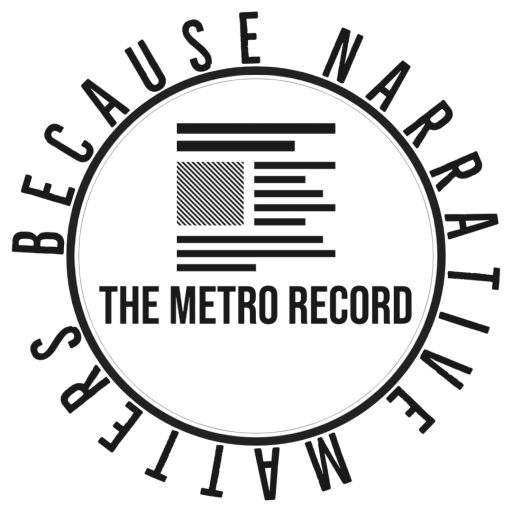Dr. Katrina Banks grew up in Springfield, Massachusetts watching her aunt recover from a debilitating stroke. She remembers the confusion, the fear, and the feeling that no one had answers, not for her aunt, and certainly not for the family trying to help.
“We were told she might not recover,” Dr. Banks said. “But I saw potential. I saw resilience. I just didn’t see anyone helping us understand it.”
That early experience sparked a career path that would take her from the classrooms of physical therapy school to the cutting edge of neurologic rehabilitation. Today, she’s a board-certified neurologic physical therapist, certified in stroke rehab and Parkinson’s therapy, and the founder of Neurologic Optimal Wellness, a growing practice that blends science, technology and coaching to support patients recovering from complex brain and nervous system injuries.
But what makes her work distinct isn’t just the certifications. It’s the integration of neuroplasticity, lifestyle medicine, and holistic coaching to treat patients as full, living systems, not just bodies with symptoms.
“Healing is never just physical,” she said in a recent interview. “It’s mental, emotional, and spiritual. It’s personal.”
A Practice That Prioritizes the Whole Patient
At her clinic in Springfield, Dr. Banks works with patients recovering from stroke, Parkinson’s disease, brain injuries, and spinal cord trauma. Where traditional physical therapy often focuses on isolated movement exercises, Dr. Banks takes a broader approach, using techniques rooted in neuroplasticity, the brain’s ability to rewire itself after trauma.
“If you think about how a toddler learns to walk, that’s neuroplasticity,” she explained. “We fall, get up, and the brain builds new pathways. The same thing happens when someone learns to walk again after a stroke.”
Her practice is also deeply informed by her own journey. After completing her doctoral studies, Banks experienced a significant weight loss transformation that reframed her views on health, motivation, and the emotional components of wellness.
“I had to rethink what wellness actually meant,” she said. “It’s not just diet and exercise. It’s how you feel, how you rest, how you process stress. That changed how I work with my clients.”
From Manual Therapy to Digital Healing
Beyond traditional physical therapy, Dr. Banks is now moving into neurotechnology, leveraging emerging tools to address brain health in real time.
Her preferred method is a system called BrainTap, a wearable headset that uses light and sound stimulation to guide brainwaves toward rest and recovery. Using a six-minute brain scan, Dr. Banks can analyze patients’ sleep patterns, hormone responses, brain aging markers, and more—then customize treatment accordingly.
“One of my clients wasn’t sleeping at all,” she said. “After one session, his delta brainwave—the sleep wave—improved, and he slept through the night. That’s without any pills.”
The technology is part of a broader expansion: Banks now serves patients virtually across Massachusetts, Georgia, and North Carolina, and is preparing to launch a subscription-based digital platform called Unleash Your Movement, where members receive coaching, health education, and access to neurotechnology from anywhere in the world.
“People are busy. Entrepreneurs, caregivers, single parents—they don’t always have time to come to a clinic,” she said. “So I’m bringing the clinic to them.”
Centering Black Communities in Brain Health
While Dr. Banks’ work has been featured in national health and wellness publications, she remains committed to serving underserved and underrepresented populations, particularly in Black communities, where stroke rates and neurological disparities remain disproportionately high.
“We’re often told to expect the bare minimum,” she said. “People in our communities aren’t always taught that real healing is possible—especially after something like a stroke or brain injury. I’m here to change that.”
She says one of the biggest gaps in neurological care is education. Patients and families are rarely given understandable explanations for their conditions or recoveries.
“I’ve had patients come in after being told they’d never walk again. A year later, they’re on their feet,” she said. “People just need information, belief, and a plan.”
Her clinic, with its bold green walls and inviting atmosphere, is designed to reflect that belief. “You should walk in and feel like you’re in a space of hope,” she said. “A place that tells you: you can do this.”
A Holistic Future
Dr. Banks’ model combines neurologic science with the kind of personal empowerment more commonly found in life coaching. She leads both private therapy sessions and group coaching programs that tackle sleep hygiene, mindset, hormonal shifts, and burnout, especially among women.
“Women are often taught to put everyone else first,” she said. “But we’re navigating hormonal changes, career stress, caregiving—real life. I want to help women take up space in their own health journey.”
As her clinic grows and her digital offerings scale nationally, Dr. Banks envisions a future where proactive brain health becomes a normal part of care, and where marginalized communities have access to tools that help them not just survive, but thrive.
“We’ve been reactive for too long,” she said. “It’s time to be proactive. Our brains are powerful, and our health should reflect that.”
To contact Dr. Katrina Banks or learn more about her practice:
Visit: www.neurobrainwellness.com
Instagram: @neurologicoptimalwellness





